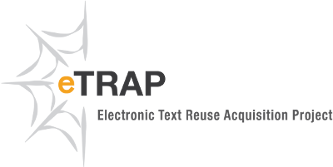The board of the Göttingen Dialog in Digital Humanities is pleased to announce the winners of this year’s dialog series award. The winner will be handed a prize of €500 and candidates in the second and third position will receive a notable mention.
The winner of the seminar series of 2015 is the paper:
Automated Pattern Analysis in Gesture Research: Similarity Measuring in 3D Motion Capture Models of Communicative Action
by
Daniel Schüller et al.
in combination with the presentation given by
Daniel Schüller, Christian Beecks & Irene Mittelberg
from RWTH Aachen University, Germany and University of Alberta, Canada
on 23rd June
The prize is awarded on the basis of an evaluation of both the paper and the quality of the presentation, for which this candidate received 85/100. “It was awesome”, “Valuable for studying the meaning of gestures”, are comments accompanying the scores, which were given for content quality, significance for theory or practice, level of innovation and presentation style by the reviewers of the papers, and by the audience for the presentations.
